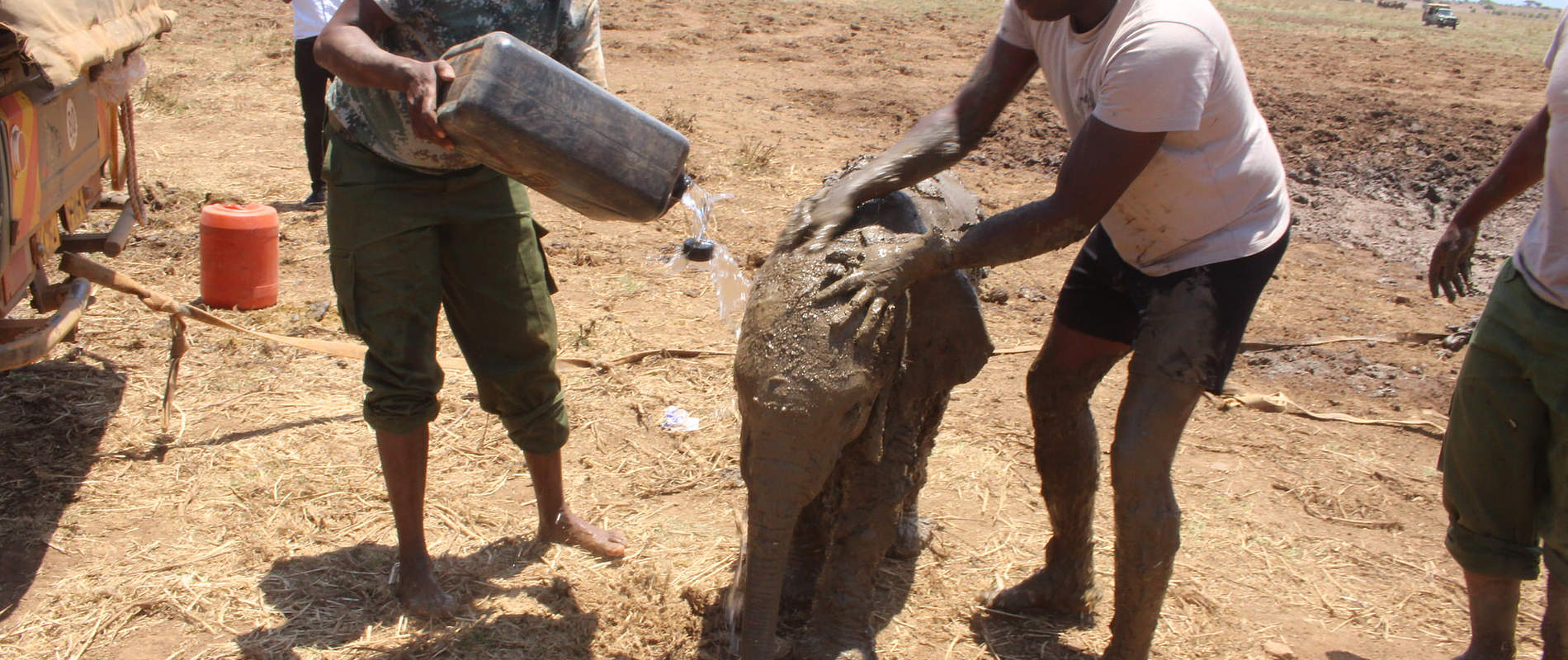During the October – December 2020, 3-month reporting period, the Sheldrick Wildlife Trust (SWT) in partnership with the Kenya Wildlife Service (KWS) and their five dedicated field veterinary officers, attended to 119 wildlife cases, 36 of which included elephants.
Of the 119 cases attended to, 29 cases were related to poaching and involved 10 snares, 10 spears, 8 arrows and 1 bullet wound. There were also 10 human-wildlife conflict cases including 5 poisoning incidents. Of the poaching cases, 18 involved elephants; 1 bullet wound, 6 arrows, 8 spear cases and 3 snaring cases. Five elephants died due to the extent of their injuries. Other elephant cases included 9 treatments for natural causes, 5 post-mortems, assumed to be natural deaths and 1 collaring. There were also 3 rescues including reuniting an elephant calf with its mother after becoming stuck in mud, rescue and relocation of a calf to the orphanage and freeing a bull that was trapped in a sewage pit.
Non-elephant cases attended to included 5 snared zebra, 1 snared giraffe and 1 snared buffalo as well as 2 speared and 2 arrowed giraffes. There were 10 human-wildlife conflict cases including 9 poisoned vultures and 2 poisoned lions. Two hyenas had to be rescued after falling into a pit latrine. A leopard was relocated due to livestock predation and a lion was also relocated after from KWS offices in Tsavo East. The investigation into flamingo deaths in Magadi revealed electrocution due to poorly visible fence-lines. Other cases included post-mortems, collarings, rescues and natural injuries. Contraceptive devices were implanted in several lions to reduce overpopulation and 59 antelope were relocated for breeding purposes.
